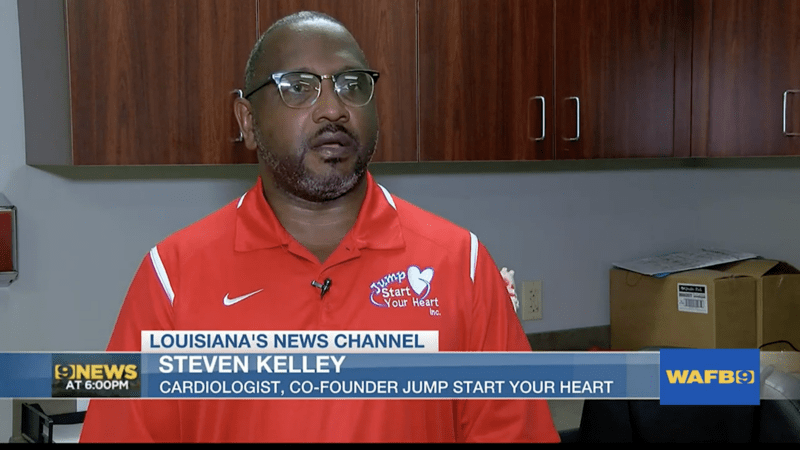Nonprofit helps screen student-athletes for heart problems
BATON ROUGE, La. (WAFB) – Student-athletes watching Monday night’s football game between the Cincinnati Bengals and Buffalo Bills saw Damar Hamlin collapse on the field after a tackle and some may wonder if it could happen to them.
“If you have the opportunity to get your child screened, I mean, it’s just imperative,” said Danielle Kelley, co-founder of Jump Start Your Heart. “The physicals that are required by the High School Association are not, you know they don’t include the cardiovascular component is just basically a physical, so our screenings include the two diagnostic screenings of the electrocardiogram, or the EKG and the other diagnostic tests, the ultrasound of echocardiogram of the heart.”
She and her husband, Dr. Steven Kelley, started the nonprofit Jump Start Your Heart to screen student athletes for hypertrophic cardiomyopathy, or HCM.
“Hypertrophic cardiomyopathy is a genetic defect where the patient has an abnormally thick heart, and also these patients are prone to have rhythm problems, and so it’s the most common cause of sudden cardiac death in a student-athlete,” said Dr. Kelley.
If the student has HCM, said it is likely they will not be able to continue playing their sport.
“Diagnosis and there are a lot of things that must come into play. I mean, I do think it’s risky if you’re playing competitive sports with hypertrophic cardiomyopathy because you never know when the heart rate jumps out of rhythm and leads to certain cardiac death,” explained Dr. Kelley.
While it’s still unknown exactly what caused Hamlin to collapse Monday night, Dr. Kelley said what makes the biggest difference in any patient is having the right tools.
“If we’re going to have our students competing, let’s have the right equipment in place and the right protocols and the right personnel in place, just in case they’re very instance, the patient or anyone goes down because it truly time is the muscle in cardiology and the longer you go without the heart beating effectively you run the risk of permanent brain damage and all these different things,” added Dr. Kelley.
For more information, contact Baton Rouge Cardiology Center at 225-769-0933 or visit www.brcardiology.com.




